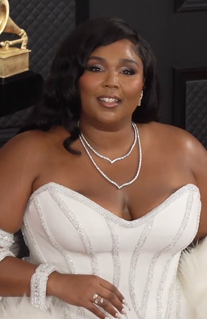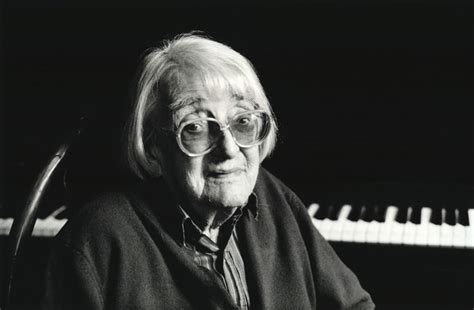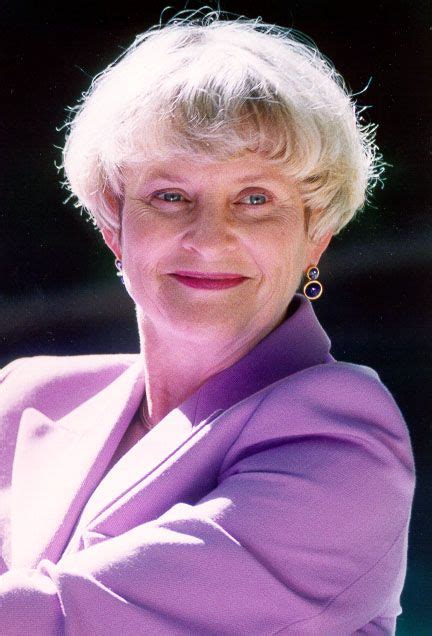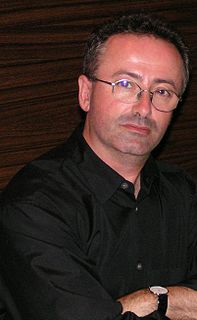A Quote by Amandla Stenberg
As I started to explore my gender identity, I didn't know how I could claim the title of 'feminist' without subscribing to the gender binary. I thought I had to be a proud woman to be a feminist. Then I came to the realization that I can be proud of women without necessarily identifying as one.
Related Quotes
Radical feminist theorists do not seek to make gender a bit more flexible, but to eliminate it. They are gender abolitionists, and understand gender to provide the framework and rationale for male dominance. In the radical feminist approach, masculinity is the behaviour of the male ruling class and femininity is the behaviour of the subordinate class of women. Thus gender can have no place in the egalitarian future that feminism aims to create.
A lot of women seem to have a similar attitude, - 'I'm not a feminist' - and it gets wearying. What's wrong with being a feminist? I'm proud to be a feminist. It's been one of the most positive things in my life. It's one of the best traditions there is. It's admirable to be a feminist and to stand up for one's sex, to fight against inequality and injustice and to work for a better society.
My conception around being a woman in 2016 has definitely been shifting over the past year, because I feel like I'm proud of womanhood, and I feel attached to it, and at the same time I'm someone who doesn't believe in having a gender binary, and so often times I separate those two concepts in my mind - the concept of being a woman and the concept of being a girl or being female, being kind of attached to a certain gender identity.
Naturally my stories are about women - I'm a woman. I don't know what the term is for men who write mostly about men. I'm not always sure what is meant by "feminist." In the beginning I used to say, well, of course I'm a feminist. But if it means that I follow a kind of feminist theory, or know anything about it, then I'm not. I think I'm a feminist as far as thinking that the experience of women is important. That is really the basis of feminism.
As someone who is non-binary gender identifying, I feel a particular responsibility to portray members of my community on stage and on screen, not only as fully fleshed-out characters who are integral to the plot, but as characters whose gender identity is just one of many parts that make up the whole person.
The potential significance of Black feminist thought goes far beyond demonstrating that African-American women can be theorists. Like Black feminist practice, which it reflects and which it seeks to foster, Black feminist thought can create a collective identity among African-American women about the dimensions of a Black women's standpoint. Through the process of rearticulating, Black feminist thought can offer African-American women a different view of ourselves and our worlds
I was always a feminist. My mother was a feminist; my grandmother was a feminist. I always understood women had to fight very hard to do what they wanted to do in the world - that it wasn't an easy choice. But I think the most important part is that we all want the right to be taken seriously as human beings, and to use our talents without reservation, and that's still not possible for women.
When I learnt, however, that in 1911 there had been twenty-one regular feminist periodicals in Britain, that there was a feminist book shop, a woman's press, and a woman's bank run by and for women, I could no longer accept that the reason I knew almost nothing about women of the past was because there were so few of them, and they had done so little.
To say anything about women and men without marking oneself as either feminist or anti-feminist, male-basher or apologist for men seems as impossible for a woman as trying to get dressed in the morning without inviting interpretations of her character. Sitting at the conference table musing on these matters, I felt sad to think that we women didn't have the freedom to be unmarked that the men sitting next to us had. Some days you just want to get dressed and go about your business. But if you're a woman, you can't, because there is no unmarked woman.
Naturally, my stories are about women - I'm a woman. I don't know what the term is for men who write mostly about men. I'm not always sure what is meant by 'feminist.' In the beginning, I used to say, 'Well, of course I'm a feminist.' But if it means that I follow a kind of feminist theory, or know anything about it, then I'm not.
I think I was a feminist before the word was invented. By the time I came across feminist books by American or European writers, I realised that there was an articulate way or a language to express all these feelings that I had had for years and years and so I became a raging feminist as a young woman.
I believe I was raised with feminist values, but I don't think I ever heard my Mom call herself a feminist. Before I identified as a feminist myself, I thought of feminism as more of a historical term describing the women's movement in the '70s but didn't know much about what they had done and didn't think it applied to my life at all.
































